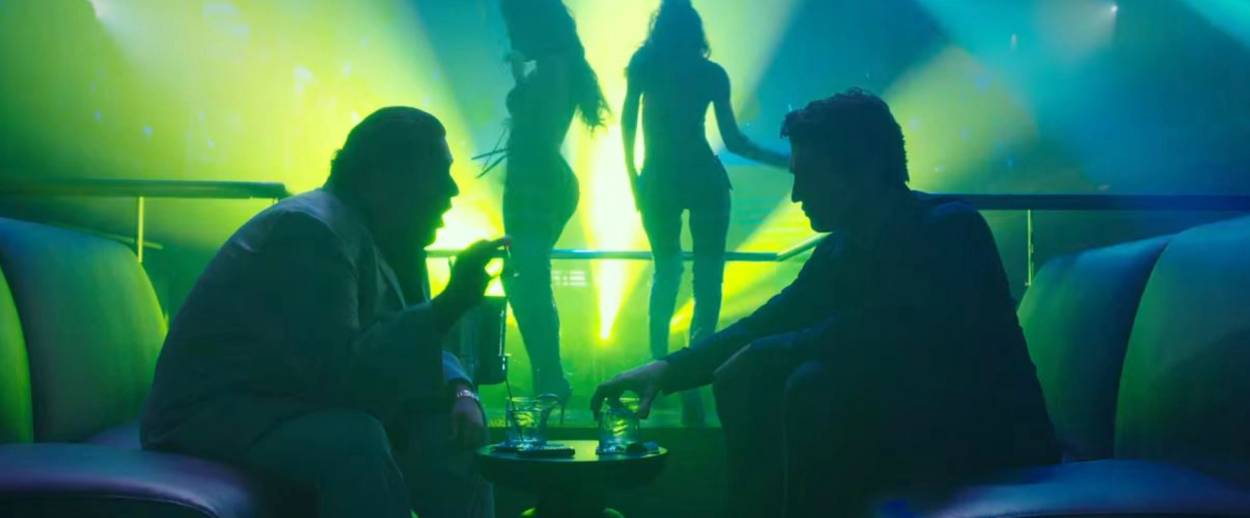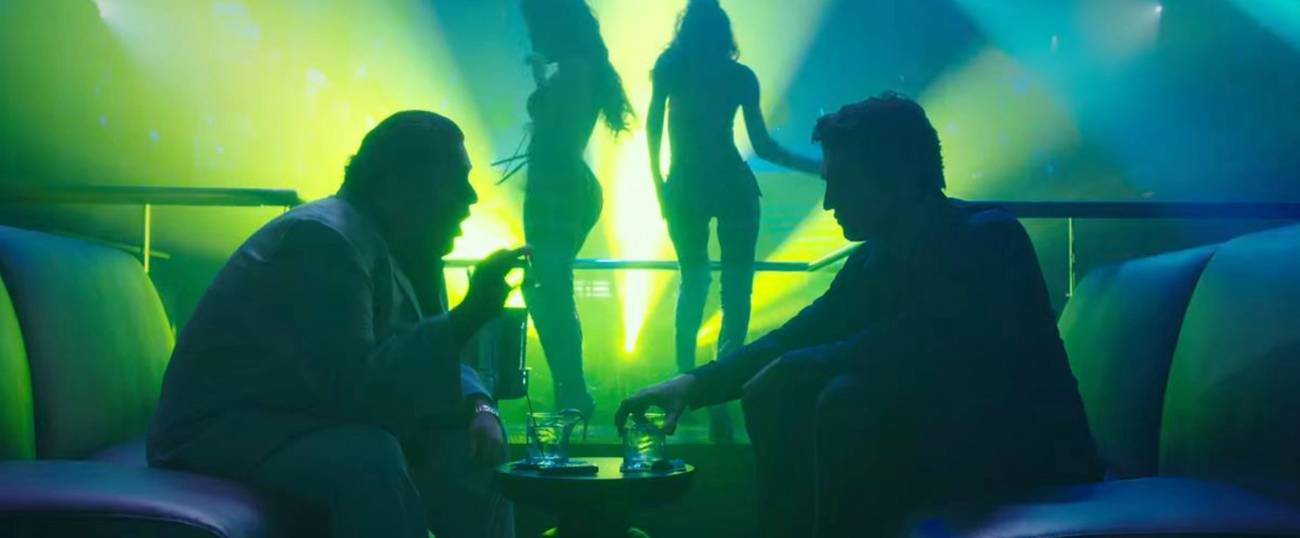When Stoner Yeshiva Students Become Arms-Trafficking ‘War Dogs’
Jonah Hill and Miles Teller star in a new film about two drug-loving arms dealers from Miami who land a $300 million defense contract




The story of two Jewish twentysomething arms dealers from Miami will hit the big screen this August in a new comedic drug-thriller called War Dogs, produced by Bradley Cooper (swoon) and directed by Todd Phillips (The Hangover).
Based on Guy Lawson’s 2011 viral Rolling Stone article, “The Stoner Arms Dealers,” and his subsequent book Arms and the Dudes, War Dogs tells true story of Efraim Diveroli (played by Jonah Hill) and David “Mordechai” Packouz (Miles Teller), two former Miami yeshiva students-cum-international arms dealers who land a $300 million U.S. Defense Department contract during the Iraq War. Shrouded in clouds of smoke from their bongs, they, along with a web of international associates, peddled aging weapons and ammunition originally from China and the Soviet Union to American allies fighting in Afghanistan. (A third partner from their Orthodox synagogue, Alexander Podrizki, joined their arms dealing scheme when they needed a Russian speaker, but he does not seem to have a significant role in the film.)
Diverlo and Packouz accomplished all this, naturally, from the comfort of their Miami apartment. “They call guys like us war dogs: bottom-feeders who make money off of war without ever stepping foot on the battlefield,” Teller’s voice says in the trailer. “It was meant to be derogatory, but we kind of liked it.”
Here’s a snippet from Lawson’s piece, which chronicles Diveroli and Packouz’s Jewish heritage:
Packouz and Diveroli met at Beth Israel Congregation, the largest Orthodox synagogue in Miami Beach. Packouz was older by four years, a skinny kid who wore a yarmulke and left his white dress shirts untucked. Diveroli was the class clown, an overweight kid with a big mouth and no sense of fear. After school, the pair would hang out at the beach with their friends, smoking weed, playing guitar, sneaking in to swim in the pools at five-star hotels. When Packouz graduated, his parents were so concerned about his heavy pot use that they sent him to a school in Israel that specialized in handling kids with drug problems. It turned out to be a great place to get high. “I took acid by the Dead Sea,” Packouz says. “I had a transcendental experience.”
The trailer, however, doesn’t seem to note Diveroli or Packouz’s Jewish background much head-on, but there are glimpses. In one scene, Hill’s character Diveroli appears to be wearing a yarmulke (1:00) as he high-fives Teller; in another, a jumpsuit-clad Hill muscles his way through an airport crowd with a gold “chai” dangling around his neck (1:12).
Jewcy’s Gabriela Geselowitz notes:
This film is clearly in the new sub-genre of American Hustle or The Wolf of Wall Street of white guys making tons of money in a reprehensible manner and living hedonistic lifestyles, as some kind of post-recession message about the men we love to hate for near-sociopathically exploiting others for their own material gain. And when these men are Jewish, it just makes it that much more embarrassing.
Still, the story is an undeniably wacky one, involving Eastern European mobsters, gun runners, and major political figures, and it’s sure to make a sensational movie. (I won’t spoil what happens to the two Yeshiva friends.) But fun as the story (and trailer) may be, Packouz and Diveroli are no heroes, and neither Diveroli’s rabbi nor his mother thought so at the time of his trial.
“Efraim needs to go to jail,” a local rabbi told the judge. Even Diveroli’s mother concurred. “I know you hate me for saying this,” she said, addressing her son directly, “but you need to go to jail.” Diveroli’s shoulders slumped.
Rachel Delia Benaim is a freelance religion reporter. Her work has appeared in The Washington Post, The Daily Beast, and The Diplomat, among others. Follow her on Twitter @rdbenaim.